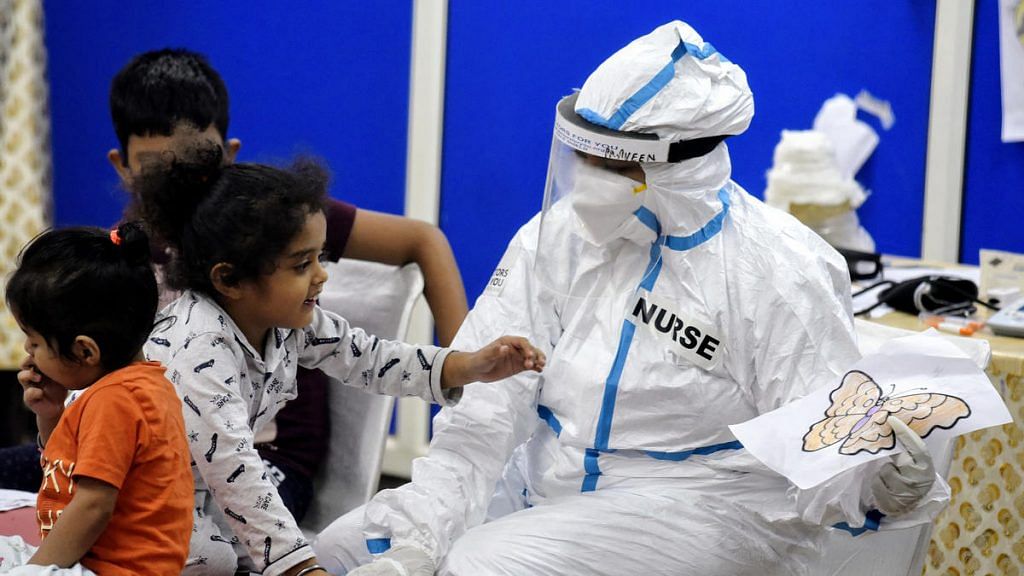New Delhi: The symptoms of Covid-19 are often similar to those of influenza, but what makes the new disease a matter of concern is the unpredictability in outcomes.
However, a US study comparing the two diseases in children has found no statistically significant differences in the rates of hospitalisation, admission to the intensive care unit, and mechanical ventilator use between the two kinds of patients.
The study, published in the Journal of the American Medical Association (JAMA), says more patients with Covid-19 than seasonal influenza reported fever, diarrhoea or vomiting, headache, body ache, or chest pain at the time of diagnosis.
The study was conducted by doctors at the Children’s National Hospital, Washington DC, and the George Washington University School of Health Science. It looked at 315 children with Covid-19 and 1,402 children with seasonal influenza.
The researchers wrote that they were prompted to do the study by the paucity of comparative data about the two diseases, especially in children, and the fact that as influenza season approaches, there may be additional challenges in the management of Covid-19.
Also read: Severity, lethality, defence: How new coronavirus stacks up against seasonal influenza
The findings
Like Covid-19, the symptoms of seasonal influenza include sudden onset of fever, cough (usually dry), headache, muscle and joint pain, severe malaise (feeling unwell), sore throat and a runny nose. The cough can be severe and last two or more weeks. Covid, though, is often also associated with a loss of taste and smell and also gastrointestinal symptoms such as diarrhoea.
The study also found that among the patients hospitalised with Covid-19, 76 per cent exhibited fever and 48 per cent reported cough — figures similar to those reported in previous studies.
“About one-quarter of patients hospitalized with Covid-19 reported shortness of breath, diarrhoea or vomiting, and body ache or myalgia (muscle pain). Overall, more patients hospitalized with Covid-19 than those with seasonal influenza reported clinical symptoms, including fever, diarrhoea or vomiting, headache, body ache or myalgia, and chest pain, at the time of diagnosis,” the researchers wrote.
They concluded: “In this cohort study of US children with Covid-19 or seasonal influenza, there was no difference in hospitalisation rates, intensive care unit admission rates, and mechanical ventilator use between the two groups. More patients hospitalized with Covid-19 than with seasonal influenza reported clinical symptoms at the time of diagnosis.”
Given the high probability of the two diseases acting as each other’s confounders when it comes to medical diagnosis, the doctors recommended that ahead of flu season, use of influenza vaccine should be stepped up, especially in those with comorbidities.
“Recognising that the upcoming influenza season could occur with Covid-19 cocirculating in the community, we believe it is prudent to ensure individuals with comorbidities receive the influenza vaccine to prevent severe disease courses that lead to hospitalisation,” the researchers said.
Implications for India
In India, influenza season is generally believed to run from September to January, the winter months. As schools begin to open, studies on the paediatric manifestations of the disease and the differences in outcomes will become more and more important in the Indian context.
There are four types of seasonal influenza viruses — A, B, C and D. India’s universal immunisation programme includes a vaccine against the Haemophilus Influenzae Type B bacteria, which is part of a pentavalent (five-in-one) vaccine administered to all babies born in the country.
Also read: India to make Severe Acute Respiratory Infection and Influenza-Like Illnesses notifiable
